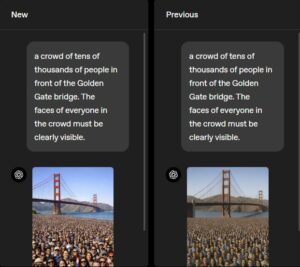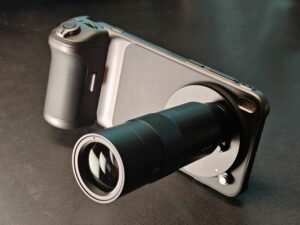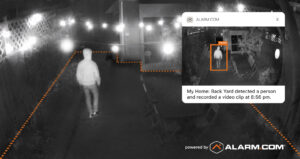What with the surge in the number of bands trying to cut their teeth in the music realm, the battle of selling CDs to music junkies seem to be intensified on the Web, rather than on retail shelves.
Taking the heed of Radiohead (aka the greatest rock band of all time), Nine Inch Nails also went on to release their latest album on their website as a completely free download available in a large variety of formats. And the files weren’t small, compressed files either. Users with great patience can choose to download the entire album in the 1.2gb WAV “better than CD-quality” version.
Letting fans freely download the album appears to be an interesting marketing technique, considering the band had given away the first single freely, and the second single was released on their Facebook iLike page. And with record labels repeatedly claiming that such online downloads will rob them from CD sales, it would be interesting to note if this theory holds water, after physical copies of the Nine Inch Nails album hits the stores this month.





Steph –> thanks for recommending both Imeem and Jango. More social music sites for me to bookmark, all about sharing music tastes with different people.
Chris –> Great points on your post. Agree with most of the stuff you’ve said there. Support the artistes not the distributor. Go see a live concert. ‘Nuff said.
Used to be more of a hardcore “content evaluator”, but as I grow older I try to support the indie content makers. Commercial stuff not a chance. 🙂
Well… when wireless access is cheap and ubiquitous then internet radio and social music will take off. Right now its nascent, like when Napster was nascent file sharing.
Ah, good, Techgoondu’s resident vinyl audiophile joins the discussion!
Even I used to fantasise about one day owning a Nakamichi Dragon. And god knows how much money I wasted on metal and chrome cassettes in the pursuit of (imagined?) headroom to push the levels as high as they could go while dubbing stuff. Top of the pops, eh? During my time it was Say It With Music and Casey Kasem hosting American Top 40.
But yes, you old fart.
Technical inferiority remains just that, and nostalgia can’t change that. Vinyl at least has the benefit of, among other things, better frequency range than CD (though that diminishes as you approach the centre of the LP), but tape is good for… playing repeatedly till it gets unbearably hissy. I still remember the anecdote about Queen pausing its Bohemian Rhapsody recording session to figure out where all the bass was going. They held up the tape and it was almost transparent. Nuff said.
Many record label executives are well aware that DRM sucks and that high bit-rate MP3 still isn’t good enough. The question is what they’ll do about it. Vote with your dollar, and help determine the outcome.
Hey Chris! Don’t slag cassette tapes! My best music memories were those languid weekends spent taping top of the pops off FM radio. And I used to absolutely drool over that uber stratospheric-end cassette deck to end all decks Nakamichi Dragon. There is just something indescribably organic about ferrite heads and pinch rollers slurping analogue goodness off from reels of tape.
And VU meters dancing to Thomas Dolby. Okay, okay, u can all call me lau uncle.
But on music downloads, I say only DRM-free AND lossless will do! The business of serving compressed music, never mind DRM, will only encourage record labels to snip corners on recording quality and give us signal-compressed music. Yuck!
Hey Steph, look like my comment prior to your latest ones only just made it through the spam filter, which means it was posted a moment ago.
Viva la Vida’s really a great example of how giving fans a preview boosts sales. But it also shows how EMI and Coldplay could have gone a lot further. The free streaming of the whole album was actually scheduled for AFTER the album hit store shelves, but was moved forward to pre-launch after Viva la Vida was unofficially leaked in its entirety online. Yes, the first single, Violet Hill, was officially released as a middling quality (192k DRM-free MP3) free download, but what the label and band should have done was leak the whole album themselves like Nine Inch Nails did, since post-leak sales proved that it wouldn’t have hurt sales. They could easily have kept the bit rate low to encourage people to get the CDs for the best quality.
Also, who are people kidding when they offer streaming but no downloads. Ripping streams to your hard disk is easy, which means that anyone could have ripped the officially streamed album anyway.
But the bottom line is that Viva la Vida’s a great album, and I’m glad it’s not on tape, or I’d have worn off the oxide by now the way I’ve been listening to it.
Hey Chi-Loong, have you tried Imeem or Jango? They are great if you want to hear songs from obscure bands, or if you are looking for tracks that are really hard to find.
Hi Chris! How are you? Coldplay’s Viva la Vida album has pretty much proved that online downloads dont affect end CD sales. In fact, by placing their first single on the Net for fans to download just piqued their interest in the album and encouraged them to buy a copy. If I’m not wrong, Viva la Vida is already the second most popular Coldplay album to date. By the way, did you grab a copy? It’s on repeat on my playlist (:
Hi Chi-Loong,
I agree that DRM is unacceptable, plain and simple.
One of the main reasons most people need to store actual music files on their hard drives is to make their music portable. Portable music players don’t come with wifi or 3.5G yet (with the exception of the iPod Touch and Creative Zen X-Fi), and even if they did, none of the primitive mobile Web browsers work with mobile music sites as far as I know. Converged devices like the iPhone and its competitors may change this eventually, but we’re not there yet. And don’t forget that many drivers like to play music on their car stereos, which aren’t Web-enabled either.
As for why you’d want to buy when you can download for free – I think the answer’s pretty complex. Artists deserve to be paid for their work. Do they deserve to be paid for every single track out there? Maybe not. Do labels deserve to take most of the money and give artists hardly anything? Certainly not. But if artists can’t make a living making music, why would they continue to do it?
The answer might lie in the current mainland Chinese model, where artists make money from live gigs, not from album sales. That would require a huge global mindset shift towards accepting the inability to monetise every aspect of intellectual property.
Personally, I’m happy to pay for commercial downloads when:
1) I can buy CD-quality downloads (FLAC, Apple Lossless or WAVE) that are DRM-free.
2) I know the money goes to the artists, as is the case with indie sites like musicishere.com, CD Baby, and Bleep.com.
Commercial music downloads had also better evolve to include full album art, liner notes, lyrics and bonus content. The irony is that a lot of this is included in illegal torrents, but not in official commercial downloads.
You need to give consumers the equivalent of what they get elsewhere before you can fully justify charging for it.
Trash those DRM-infected rubbish.
Sorry, but for me why would I limit myself to owning and buying virtual copies of songs when I can just think about what I want to listen (or get recommended a nice song) and then pull it off the great big virtual net? For free?
I’ll recommend Deezer. Search for a song. Find it. Stream it over the net and play it on your computer.
Others? Try SeeqPod or musicovery. Really cool stuff. Or even just plain Youtube or Myspace
Why do I even NEED to have a storage of songs on my hard disk… think about it. Music is moving beyond the digital vs. analog divide — that the music distribution dinosaurs are still grappling with — and into the concept of music on demand. For free.
There are plenty of statistics which show that allowing the public early access to an album (whether it’s streaming or free downloads) boosts CD sales rather than hurting them. Radiohead’s pioneering attempt was imperfect, but there’s been a deluge of similar attempts since (Portishead, Elvis Costello, Coldplay, Helen Sventitsky, etc), with Nine Inch Nails being the most innovative of the lot. It actually uploaded its instrumental album, Ghosts I-IV, to the BitTorrent site The Pirate Bay, with a note asking people to buy it if they liked it. That’s what happens when foresight and balls come together.
FYI, Nine Inch Nails’ The Slip is already in stores. And the better-than-CD quality download option is 24-bit/96kHz, which is DVD-Audio quality. CDs are 16-bit/44.1kHz. DAT tapes are 16-bit/48kHz.
Meanwhile, Nokia’s recently-launched Music Store only sells DRM-restricted 192k WMA music files. Do you laugh or cry? Or yawn? Apple’s iTunes Store will eventually have to upgrade to Apple Lossless downloads, and Amazon’s MP3 Store will have to consider FLAC (Free Lossless Audio Codec) sales sooner or later. When digital downloads across the board are of at least the same quality as physical CDs, that’s when things should really get interesting.